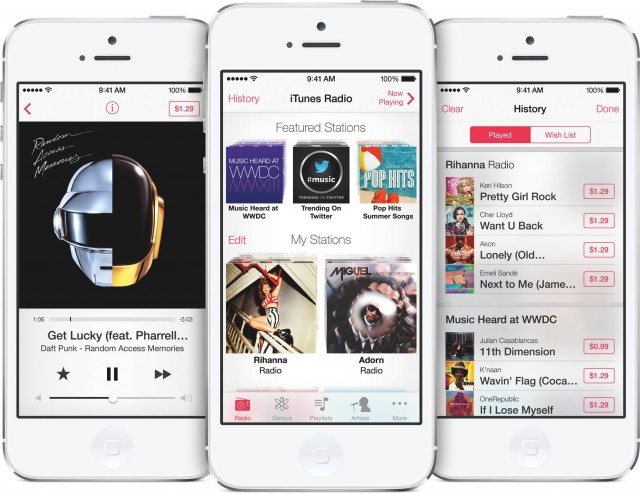While they were busy not killing the Mac and the Mac Pro, it seems Apple also had some ideas about how to not kill music. Amidst hair pulling and gnashing of teeth over how streaming will impact the future of music business models, Apple’s answer is spelled out in their press release:
“It’s the music you love most and the music you’re going to love, and you can easily buy it from the iTunes Store with just one click.”
Whether iTunes Radio specifically works or not, this seems an obvious model. Music recordings as a business work so long as the people selling them – whether a massive label or an individual artist – can work out ways of selling them and not just streaming them.
Apple even lays out what it thinks makes sense to stream in the same release:
Whether it’s an exclusive single from an up-and-coming band or a pre-release stream of an entire album, iTunes Radio has it all. iTunes Radio will also be home to special events including live streams direct from the iTunes Festival in London and other exclusive iTunes Sessions.
Those buy links were prominent in demos in the WWDC keynote.
It seems a direction people recording music are already going: stream the whole album first, give away promotional exclusives, then offer sales of the real album (often supplementing digital with physical). It’s how, most recently, readers got acquainted with Jon Hopkins.
There’s reason to assume this may be a long game. While musicians may well wind up being as impoverished as always, the companies serving up the streams might eventually want to profit. (You know, instead of actually losing money: a worthy question to ask of Spotify.)
For now, it’s far too early to judge iTunes Radio’s chances of success. And certainly, you shouldn’t expect iTunes to be an indie darling: it seems many independent artists and small labels are paying just to get on iTunes, left out of many promotional deals (like iTunes Festival, with headliners like Justin Timberlake). But if you want Apple’s take on the idea – and why they may have earned cooperation from labels frustrated with services like Spotify – it’s all there in the black ink.
Personally, I’ll bet on any of the players whose ink is black over the ones streaming red.
Image courtesy Apple.
